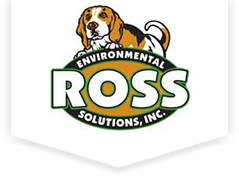Generator Safety Requirements in Cherry Hill, NJ; How Far Away from the House & More
Many homeowners are getting generators for their home in the event they lose power for extended periods of time. However, where there is wisdom in having a generator, it may be some time before you need it. When you do need your generator, you will want to make sure you operate it safely. Ross Environmental Solutions would like to share essential safety operations of a stand by generator to ensure no harm comes to you or your home.
Preventing Generator Hazards & Dangers
When the time comes that you need your generator, it will probably be during a natural disaster or storm where power is lost. In these situations the one operating the generator can easily overlook even the most basic safety measures. It is important to know how your generator works and its proper safety measures. If the operator cuts any corners, carbon monoxide can easily fill the home and even kill those inside within 5 minutes if the carbon monoxide levels get high enough.
Safety Tips When Using a Generator
– It is important to get a stand by generator that produces the amount of amps you need. Avoid both over exceeding your needs as well as under exceeding them.
– Know your generator. Each generator will vary in proper operation of the machine.
– Become familiar with your generator.
– Appliances that aren’t in immediate use such as a refrigerator or even the home HVAC system should be unplugged to prevent overloading the generator. Unplug washing machines, cooking appliances, and even the entertainment center should be unplugged until you need to use it. This will help conserve energy and prevent overloading. For larger appliances it is also recommended that you plug directly into the generator with a heavy duty extension cord. Again this helps prevent overloading.
– Generators require fuel to run. Only store in approved fuel storage containers. When you need to refuel your generator, make sure to let the generator cool down before refueling to avoid fires.
– It is highly recommended to get a carbon monoxide detector, especially in sleeping areas. One of the greatest dangers that generators could pose is carbon monoxide poisoning.
– Never operate a generator when it is wet. It is recommended you have the generator covered with a canopy or some kind of roof.
– Never enclose the generator. You will want the generator to run outside with at least 15 feet of breathing room. Again, generators can produce monoxide, so give the generator plenty of room to disperse the carbon.
– Make sure that you plug the generator into a wall that has a transfer switch. The transfer switch will protect your home’s electrical devices form electrical feedback currents, which can damage and destroy electronics.
Standby Generator Services
A generator can be your life saver when the time comes. However, it important that you safely operate a generator to prevent serious harm or damages. Ross Environmental Solutions provide stand by generators and recommends every home to have these life saving machines at the ready. If you need help calculating what size generator your home will need, and how to properly and safely operate one, contact Ross Environmental Solutions today.


